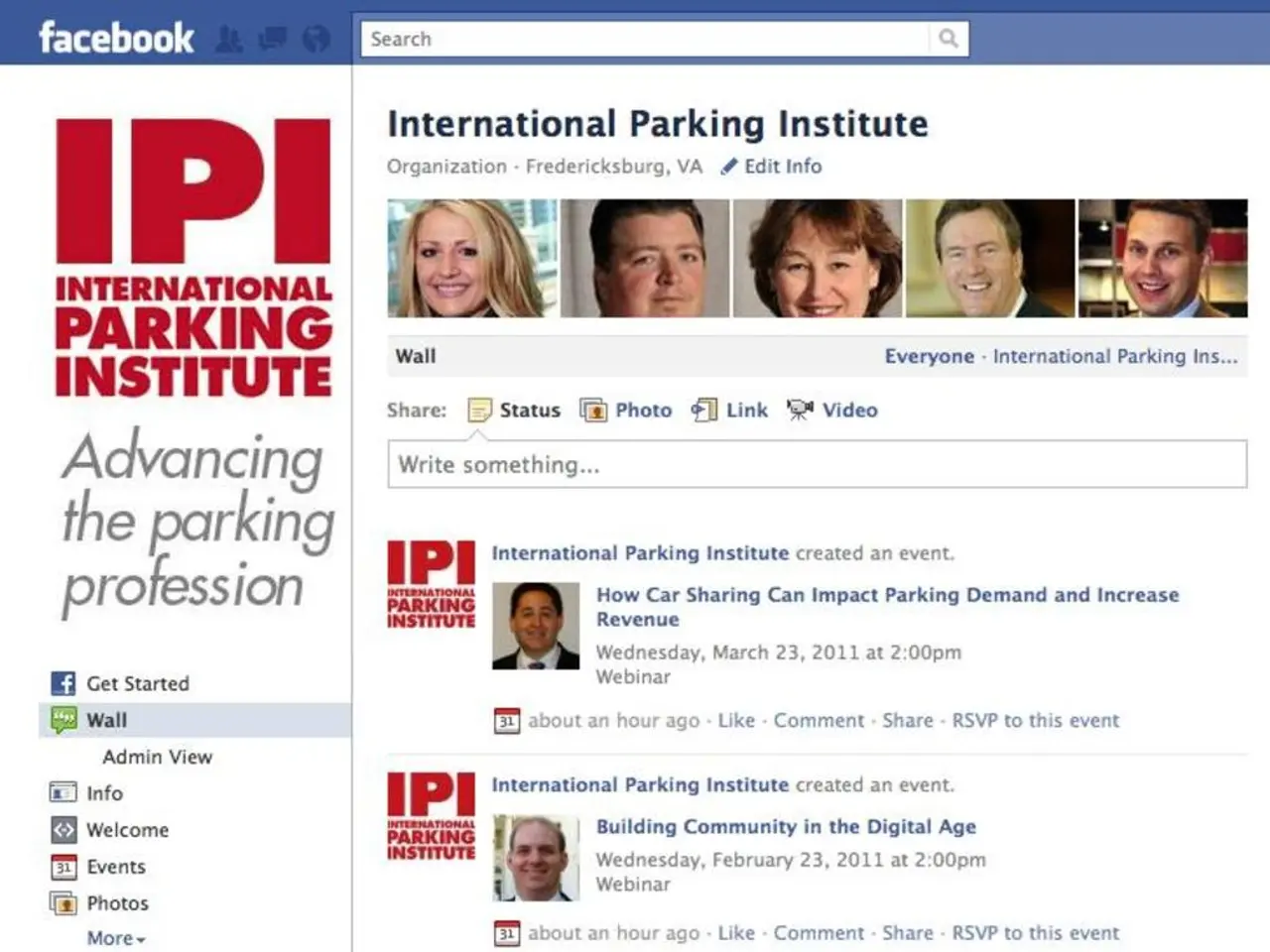Recent Advancements in Privacy Laws and Surveillance on Social Media Platforms
In the realm of digital privacy, a significant development is unfolding as the Email Privacy Act moves forward in Congress. This Act aims to protect Americans' emails from government surveillance by updating the Electronic Communications Privacy Act of 1986 (ECPA), requiring the government to obtain warrants for access to emails.
However, the Act does not specify the platforms it applies to, but it covers emails in general. Notable among the platforms that may be affected by the Email Privacy Act are Facebook, Messenger, Twitter, Pinterest, LinkedIn, and Whatsapp.
While the Email Privacy Act is a federal law, state privacy laws also play a significant role in protecting online privacy. For instance, California has already enacted similar laws regarding social media privacy in education and employment.
In Massachusetts, the situation is more complex. As of mid-2025, Massachusetts does not have a specific social media privacy protection law that has been enacted and fully operational. However, there is active legislative activity and legal debate around such issues. A notable bill—H 4229/S 30—proposed in Massachusetts aims to regulate social media use by imposing age verification mandates and digital content restrictions, intending to protect children online.
Across other US states, the landscape is mixed. Some states, including Mississippi, have enacted social media age-verification laws requiring platforms to verify user ages to restrict minors' access. However, these laws face legal challenges and opposition from industry groups.
Multiple states have passed or amended broader consumer data privacy laws that impact how personal data, including data collected via social media, can be used, sold, or disclosed. For example, Montana and Oregon have recently updated their consumer privacy statutes to enhance protections for minors and provide clearer consumer rights related to data usage and opt-outs from targeted advertising.
Federally, the US still relies on laws such as the Children’s Online Privacy Protection Act (COPPA), the Gramm-Leach-Bliley Act, the Wiretap Act, and others to govern aspects of online privacy but does not yet have comprehensive federal legislation specific to social media privacy.
The bill in Massachusetts also prohibits compelling a student or employee to add anybody as a "friend" on social media. It is important to note that the bill does not apply to information that has been publicly shared by a student or employee.
The patchwork of state privacy laws in the United States creates a complex regulatory environment for businesses. To ensure compliance with federal and state regulations, businesses need to stay informed about local and national privacy laws.
The House Judiciary Committee has unanimously approved the Email Privacy Act, signifying a step forward in the process. However, the journey towards comprehensive social media privacy protection is still a work in progress, requiring careful navigation through the complexities of privacy, free speech, child protection, and industry compliance costs.
References: 1. Computer & Communications Industry Association 2. NetChoice 3. State of Montana Legislature 4. Massachusetts General Laws 5. Federal Trade Commission
- As the Email Privacy Act progresses, it's crucial to consider its potential impact on platforms such as Facebook, Messenger, Twitter, Pinterest, LinkedIn, and Whatsapp, aside from emails.
- In the realm of education-and-self-development, the Massachusetts bill H 4229/S 30 proposes regulating social media use by imposing age verification mandates and digital content restrictions, with a focus on protecting children online.




